
Get latest financial information, tips, insights & more

What is a Cash Deposit Machine (CDM)?
In today’s fast-paced world, banking technology has evolved to offer convenience at our fingertips. One such innovation is the Cash Deposit Machine (CDM), a device that allows customers to deposit cash directly into their bank accounts without the need to visit a bank teller. This guide explores what a Cash Deposit Machine is, how it works, and the benefits it offers to users.

What is Meant by Internet Banking and How Does It Work
In this day of technology, where the country is close to becoming a cashless economy, internet banking plays a pivotal role in shaping the consumer’s banking habits. With this evolution in banking technology, financial freedom is just a click away and has emerged as a comprehensive solution for all banking needs.

Recharge FASTag: Step-by-Step Guide for Easy Top-Ups
FASTag is an electronic toll collection system in India, introduced to streamline the toll payment process on highways. Utilizing Radio Frequency Identification (RFID) technology, it enables automatic deduction of toll charges from a prepaid or linked account without requiring the vehicle to stop at the toll plaza.

What is CVV on a Debit Card? Understanding Its Importance and Security Features
Whenever you purchase something online using a Debit Card, you will find a field requesting for CVV. The full form of CVV is the Card verification value. Debit cards have CVVs, and you can find the three digit number typed on the back side of the card. Flip the card around and the CVV number can be found below the magnetic strip. The first three of four digits of the CVV are hidden by the magnetic strip and the last three are visible. People are likely to get confused between CVV and PIN, but these are two different numbers and are required for different purposes. For completing any online transaction CVV is a must as it ensures secure transactions preventing risks and frauds. So let us help you understand the function of CVV.

What is VPA in UPI and How Does It Work?
With the advent of digital payment, life has become so much simpler. Gone are those days when cash payment was the only mode available, and people carried bulky wallets. Virtual Payment Address (VPA), a unique payment option part of the Unified Payments Interface (UPI), has largely replaced traditional payment. This simplified monetary transaction is proving to be an enhanced asset driven with security, and the acceptance of UPI payments across the country and businesses is almost a norm these days.

How to Update Your FASTag KYC: Step-by-Step Guide for Online & Offline Methods
Keeping your FASTag KYC information up to date is important. KYC, which stands for Know Your Customer, helps verify your identity and ensures secure transactions. When you first get FASTag, you provide KYC details. If this information changes, such as your address or ID number, you should update it with your bank as soon as possible. Before we delve into how to update KYC in FASTag, let us understand what FASTag is.

Mobile Banking - Benefits, Features & How to Get Started
In the age of smartphones and their ability to onboard various applications, banks have channeled their facilities and services through institute applications, making the lives of consumers easier to access banking services. With the need to visit the bank almost becoming unnecessary, you can open accounts, transfer funds though IMPS, NEFT, RTGS, UPI, MMID etc, manage your accounts like generating statement, Interest certificate, provisional certificate for Loan accounts, plan investments in Govt Schemes like PPF, SSA, KVP, SGB etc as well as in private entities like Mutual fund and Life Insurance. You can pay bills, Recharge your phone, DTH etc. Now banks have gone step ahead where you can avail digital personal loan where you can avail digital personal loan of a certain amount based on the transaction history of the account that too without visiting your branch and also you can get a monthly spending summary all from one banking app. So, what is mobile banking? Let us discuss the scope in detail.

IFSC Codes: What They Mean, How to Find & How Does It Affect Banking?
IFSC code stands for Indian Financial System Code. This code is a unique 11-character alphanumeric combination that serves as an identifier for a specific bank branch within the Indian financial system. Each bank branch that engages in electronic fund transfers is assigned a unique IFSC code to facilitate accurate routing and seamless transactions.

Maximizing Your Savings: Auto Sweep Facility Explained
The auto sweep facility is a unique banking feature designed to maximize your savings by automatically transferring surplus funds from your savings account to a fixed deposit (FD) account. When the balance in your savings account exceeds a predetermined threshold, the excess amount is "swept" into a higher-interest earning FD. This facility ensures that your idle funds earn better returns without compromising liquidity. Essentially, it combines the benefits of a savings account and a fixed deposit, providing both liquidity and higher interest rates.
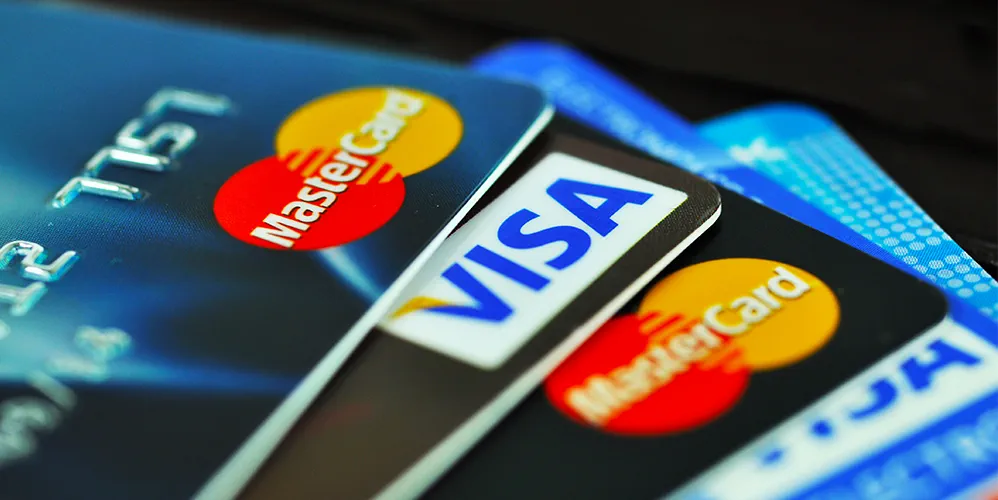
Difference Between Visa and Mastercard: Which One is Right for You?
When it comes to choosing a debit, credit or prepaid card, one of the most common questions is, "Visa card vs Mastercard: which one is better?" Both Visa and Mastercard are widely recognized and accepted worldwide, but there are differences between the two that may influence your decision. This guide will explore these differences, helping you understand which card might be better suited to your needs.

Understanding Fixed Deposit Benefits for Senior Citizens: A Complete Guide
For senior citizens, securing financial stability and earning a reliable income from their savings is crucial. Fixed deposits (FDs) are one of the most popular investment options for this demographic due to their safety and assured returns. This guide explores the fixed deposit interest for senior citizens, the features of these deposits, their financial benefits, comparisons with other investment options, and tips on choosing the right FD.

Unlocking Financial Efficiency: How Cash Management Services Transform Banking
In the dynamic world of finance, Cash Management Services play a pivotal role in helping businesses maintain liquidity, optimize cash flow, and ensure smooth financial operations. Banks offer these services to manage their clients' cash transactions efficiently. This blog delves into the nuances of cash management services, highlighting their importance, types, functioning, and benefits.
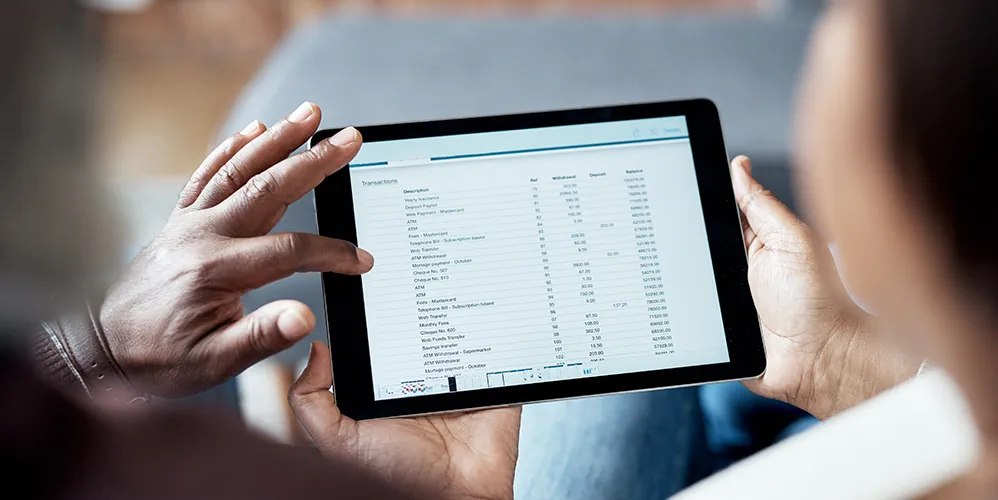
What is a Bank Statement - Meaning, Features and Benefits
In today's financial landscape, it's essential for everyone to understand what bank statements are. whether you're an individual managing your personal finances or a business handling transaction. Essentially, a bank statement is like a detailed report for your bank account. It records every money move you make—like deposits, withdrawals, transfers, and any fees—over a specific period, giving you a clear picture of your financial situation. This article aims to delve into the meaning, features, and benefits of a bank statement, highlighting their importance in managing money effectively in today's financial landscape.
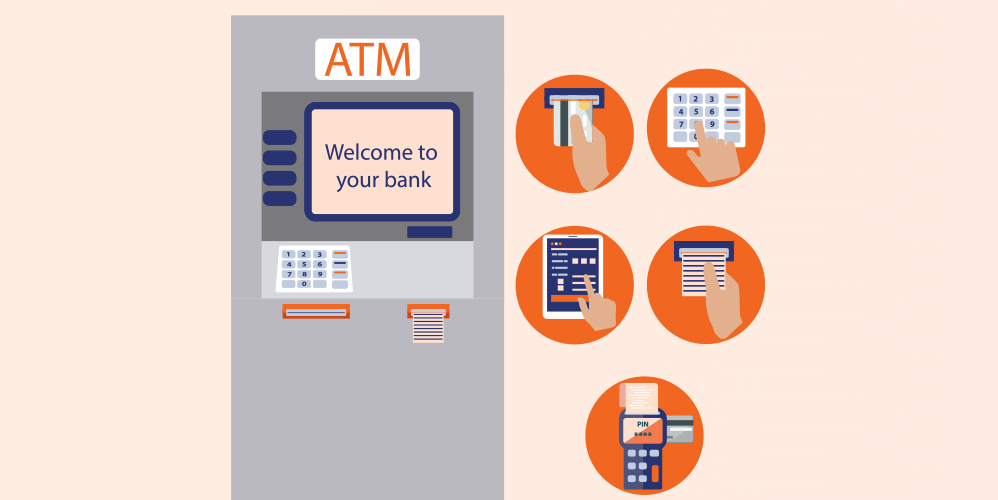
What to Do When You Forget Your ATM PIN
Your ATM Personal Identification Number (PIN) is like the key to your bank account. It’s a vital piece of information that safeguards your funds and ensures that only you can access them. Memorizing your PIN is crucial for security reasons, but we all know that memory lapses can occur, which is why it is important to make sure that your ATM pin is simple and can be easily recalled by you.
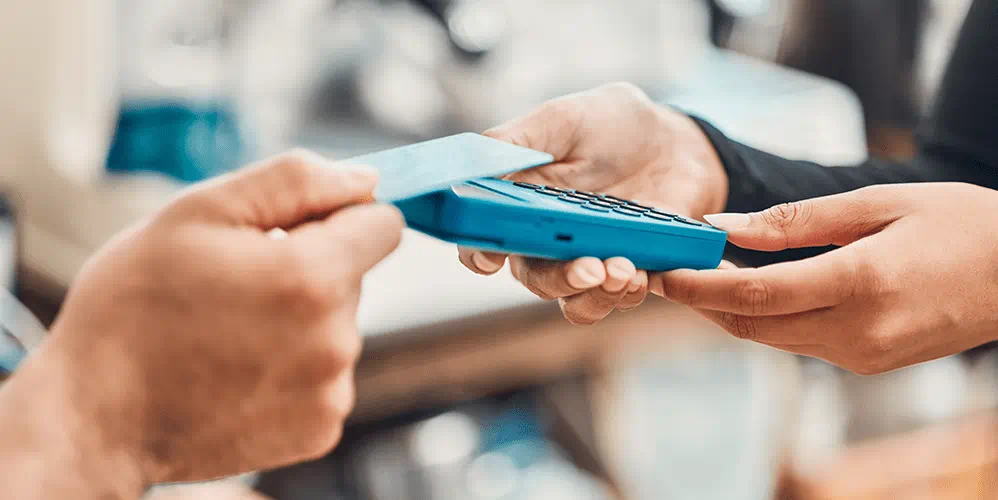
A Step-by-Step Guide to Setting Your New ATM Card PIN
Find out how to generate your ATM card PIN with the Bank of Baroda's step-by-step guide. Explore the activation process, choose a secure PIN, and get tips on keeping it safe. Read more about generating a new ATM PIN here!
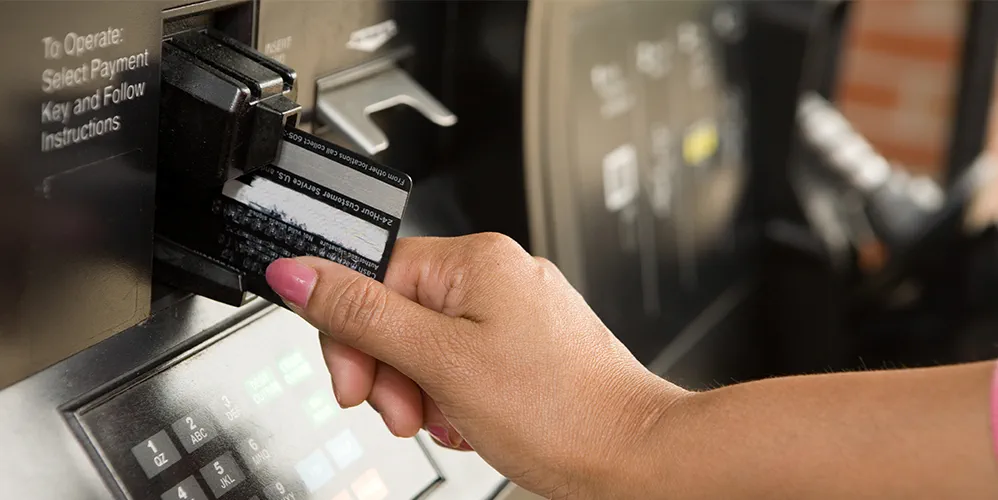
Step-by-Step Guide: How to Insert ATM Card into an ATM Machine?
Learn how to securely insert your ATM card into an ATM machine with the Bank of Baroda step-by-step guide. Discover why it is important to insert your card, the processes that occur during card insertion, and essential safety tips for using ATMs.
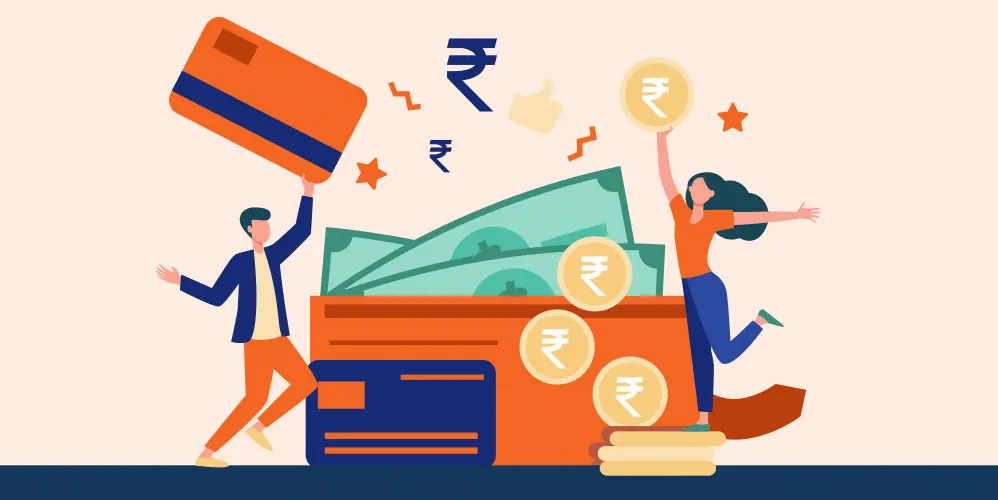
How to Withdraw Cash from Your Credit Card at an ATM: Step-by-Step Instructions
Learn how to withdraw money from your credit card at an ATM with Bank of Baroda. Our step-by-step guide will walk you through fees, the process, withdrawal limits, card PINs & more to ensure a successful transaction
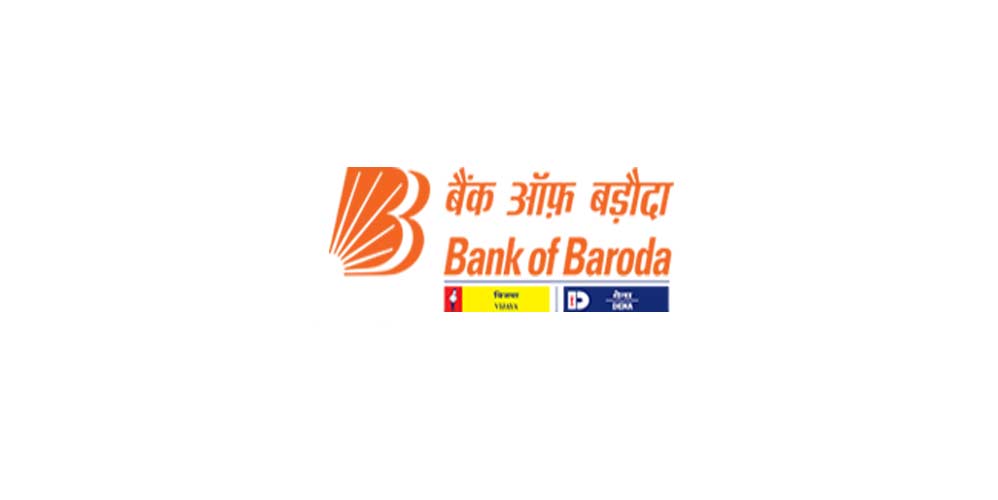
From PINs to Receipts: Everything You Need to Know About Withdrawing Money from ATMs
Learn how to withdraw cash from an ATM with simple steps from Bank of Baroda. Discover how to take money from an ATM, get security tips for withdrawing money & explore the various types of ATM cards & PINs available.
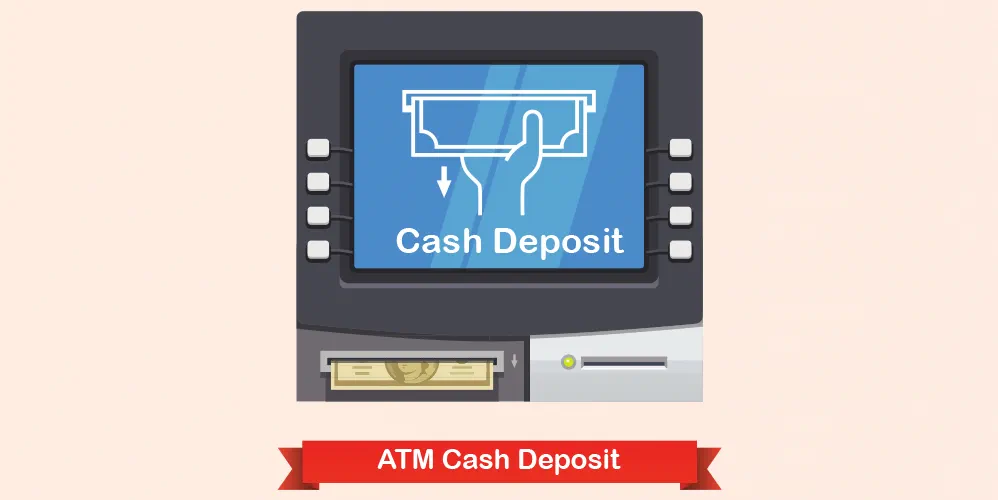
Easy as 1-2-3: How to Deposit Cash Through an ATM
Learn how to securely deposit cash at an ATM with Bank of Baroda. Follow our step-by-step guide to ensure a hassle-free experience. Start today and safely deposit your money through an ATM.
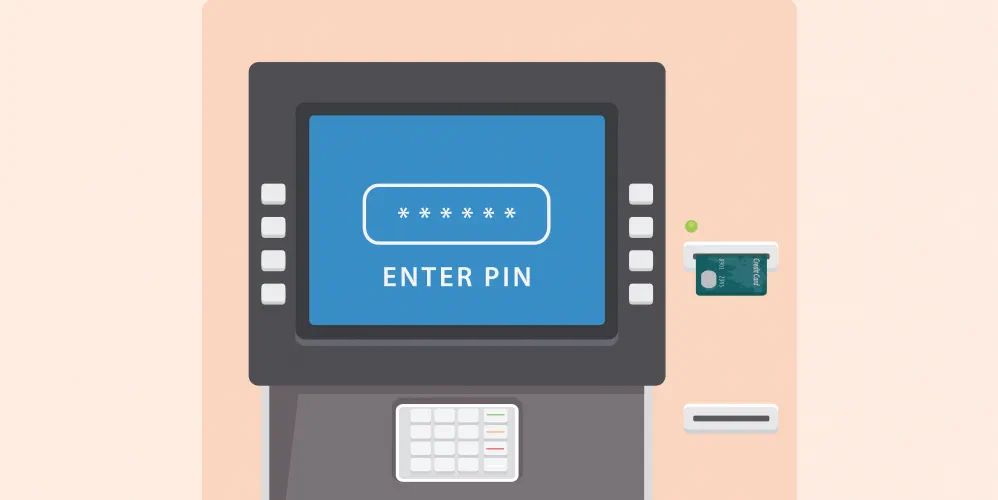
Decoding ATM: Full Form, Meaning, and Usage Explained
What is an ATM? Discover the full form, meaning, history, functionality, and benefits of ATMs with Bank of Baroda. Learn how to use an ATM, explore its evolution & its significance in the banking industry.
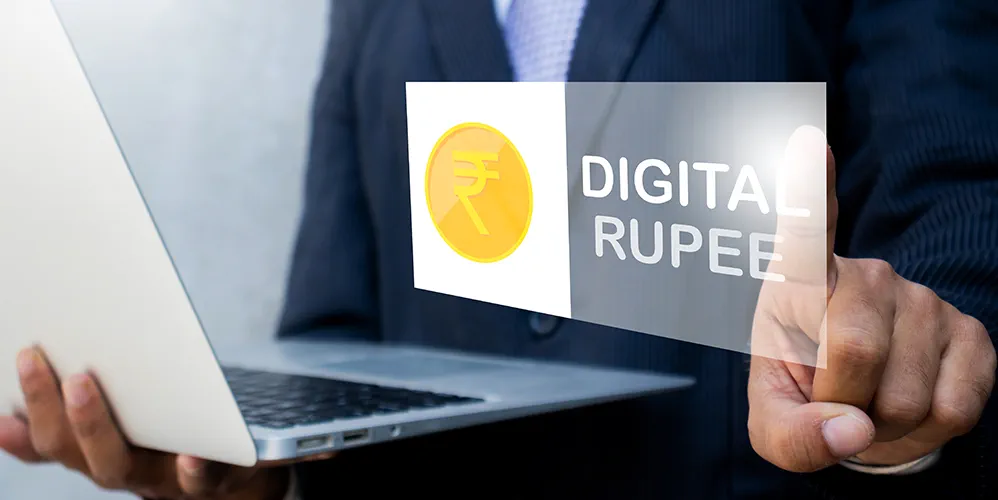
What is Digital Rupee and how does it work
Learn what the Digital Rupee is, why it's being introduced, how it works, the types of Central Bank Digital Currency (CBDCs), and how to acquire it. Gain a better understanding of digital currency at Bank of Baroda.

How To Activate Debit Card
Congratulations! You have just received your new debit card and you can’t wait to use it! Whether it's a replacement for an old card or your very first one, you're now on the path to making quick and easy transactions, while managing your finances smoothly. However, before you start swiping, tapping, or using your card for online purchases, you need to go through an important process. You need to activate your debit card in order to use it. In this blog, we'll walk you through the process of activating your debit card and provide you with some valuable tips to ensure a smooth experience.

Understand Credit Card Features, Benefits and Tips
Credit cards come with various features and benefits, and when use wisely & cautiously are a great way to manage your finances and build a credit line for your personal & professional aspirations. Before you get a credit card, it's important to understand the features, benefits, and things you should kind in mind while using credit card. What makes credit cards popular is the ability to make payments with the card or through UPI if you have a RuPay Credit Card. This can be incredibly convenient, but it also means you need to be careful to not overspend and rack up debt. Ultimately, it's important to weigh the pros and cons before deciding whether or not a credit card is right for you.
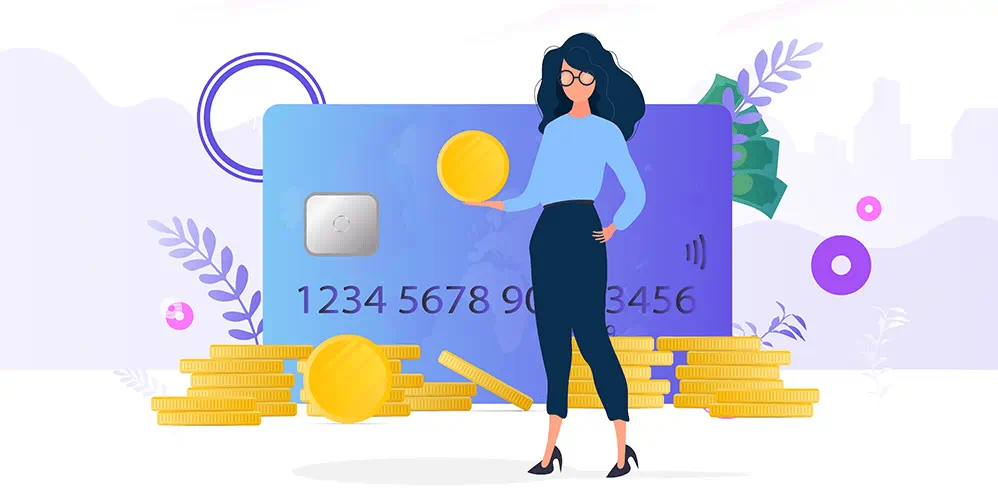
Types of Credit Cards
With so many choices available to consumers, it can be hard to make sense of the different credit card options available in the market. In this post, we'll break down the key features and benefits of each type of credit card, so you can make an informed decision about which card is right for your needs. We'll also provide helpful tips on choosing the best card for you and using it responsibly.

Complete Guide on Credit Cards
Credit cards are a great way to manage your finances and build credit. With the right strategy, you can use them to pay for purchases, earn rewards, and even get cashback. In this article, we’ll cover everything you need to know about credit cards – from the basics of how they work and how to apply for one, to building your credit score and using rewards programs. Let us understand what is the meaning of a credit card.

How to Get a Bank Statement Online at The Bank of Baroda?
The arrival of internet banking has transformed the way one manages their finances. It has revolutionized the banking sector. Customers can now access their bank accounts from the comfort of their homes or offices.
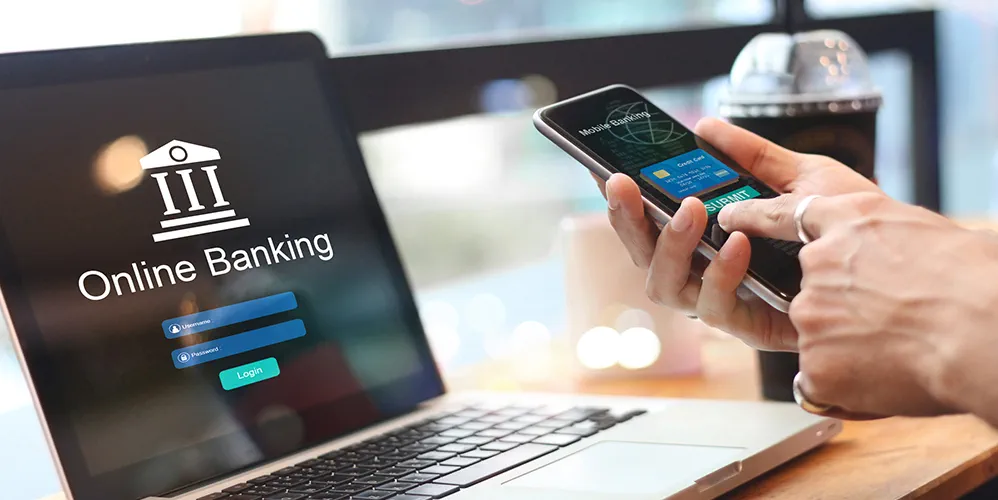
What Are The Types of Internet Banking?
The arrival of internet banking has transformed the way one manages their finances. It has revolutionized the banking sector. Customers can now access their bank accounts from the comfort of their homes or offices.

Common Internet Banking Frauds and Prevention Tips
Internet banking has made financial transactions more convenient and accessible for millions of people worldwide. However, this convenience of online banking comes with the risk of Internet banking fraud.
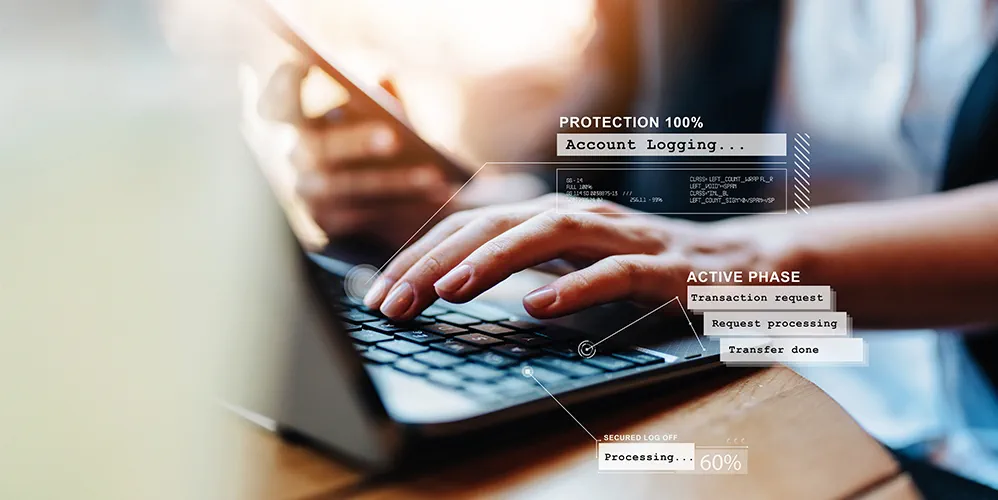
How to Use Internet Banking?
Are you new to internet banking and wondering how to use it? In this blog post, we will guide you through the steps required to start using internet banking , its various features, and how to stay safe while transacting online.

Key Features and Advantages of Internet Banking
Internet banking, also known as online banking or e-banking, has become a default mode of banking transactions for most individuals and businesses to manage their finances. With the advancement of technology, internet banking has revolutionized the way people conduct their banking transactions. The bouquet of features of Internet banking makes the banking experience more convenient and efficient. These features have made this mode of banking popular among account holders. So, what are the online banking advantages and disadvantages? Keep scrolling!
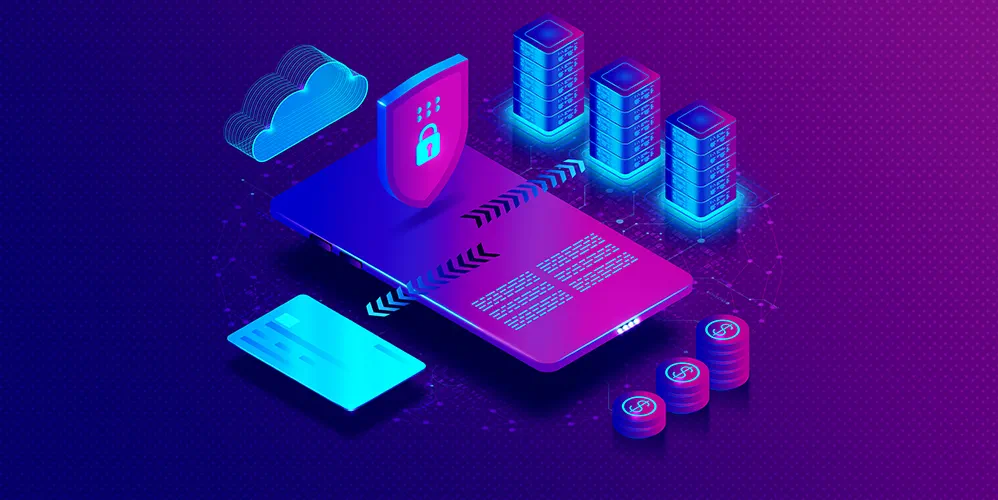
What is Tokenisation: Meaning, Working Process & Advantages
Once upon a time, there was a world where people carried sacks of gold coins and silver trinkets to buy goods and services. As time passed, technology advanced, and we moved into a world of digital transactions, where coins and trinkets became lines of code.

Understanding Bank of Baroda's ATM Services
Bank of Baroda is one of the most trusted and reputed banks in India, offering a wide range of digital products to make banking easier and more accessible for its customers. Among these digital products, ATM and Kiosk services play a crucial role in providing 24/7 banking services to customers. In this blog, we will discuss Bank of Baroda's ATM services, their benefits, and tips for using them safely.
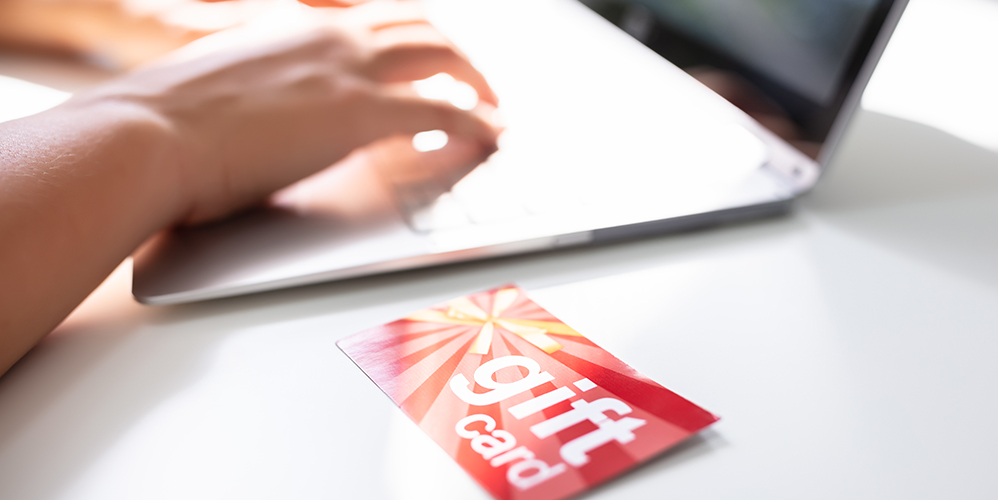
What is Prepaid Card: Meaning, Types & Benefits
In today's digital age, convenience and security are the two primary concerns for customers when it comes to making payments. With prepaid cards, you can have the best of both worlds. Prepaid cards are increasingly becoming popular, and it's essential to understand what they are, how they work, and the benefits they offer.
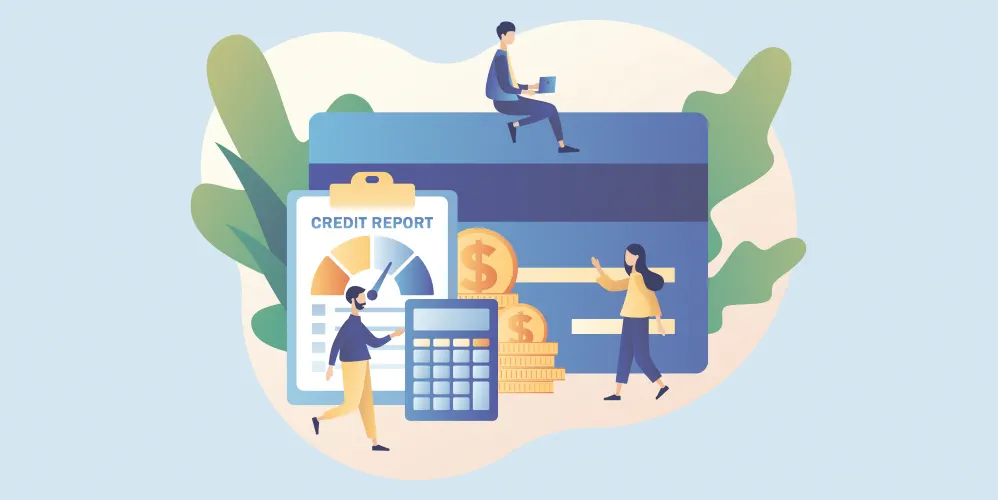
What is Minimum CIBIL Score Required for Credit Card
Are you looking to apply for a credit card? Do you know the minimum CIBIL score required for getting it approved? In this blog, we will be discussing everything related to CIBIL scores and how they affect your eligibility for a credit card. We will cover topics such as how to check and read your CIBIL score report, what factors determine the minimum CIBIL score required for credit card approval, how to improve your CIBIL score, and the benefits of having a good CIBIL score. We will also explain the impact of having bad credit or low CIBIL scores on credit card approval and offer some tips about which credit cards are suitable for people with bad credit or low CIBIL scores.
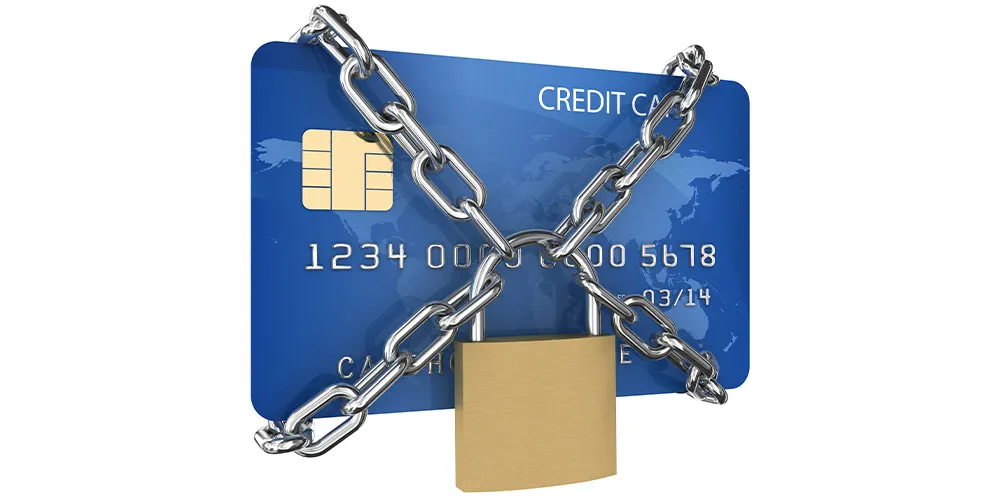
What is Credit Card Limit and How to Increase It?
A credit card limit is the maximum amount that a cardholder can spend on their respective credit card within a given period of time. And if you’re looking to increase your credit card limit, it’s important to consider your financial goals. If you’re looking to build credit, an increased credit limit could help you get there, as long as you’re careful to not spend more than you can afford.

5 Tips On How To Use Credit Card Wisely
In today’s world, credit cards have become increasingly popular and convenient. Credit cards can be a great tool for budgeting and building credit, however, it’s important to use them wisely. This article will offer tips for how to best use your credit card so that you can enjoy the financial freedom they bring with true happiness in your heart. We will look at key topics such as setting spending limits, avoiding cash advances, and more, along with sharing some famous quotes. By the end of this article, not only you should feel confident in your ability to use your credit card in a responsible manner, you will learn some famous quotes that we swear by at all times.

All about Net Banking: Meaning, Features, Advantages & Registration
Net Banking also known as Internet Banking, is a digital method to conduct banking transactions by the means of the internet, it is a time savvy facility offered by all standard banks. Individual can conduct banking activities from home through their smartphones, tablets, laptops and desktops. Net banking is a 24*7 facility which facilitates checking account balance, making fund transfer, managing debit and credit cards, opening fixed deposit and recurring deposit account, paying bills, doing online shopping, ordering chequebooks, buying general insurance, and much more.
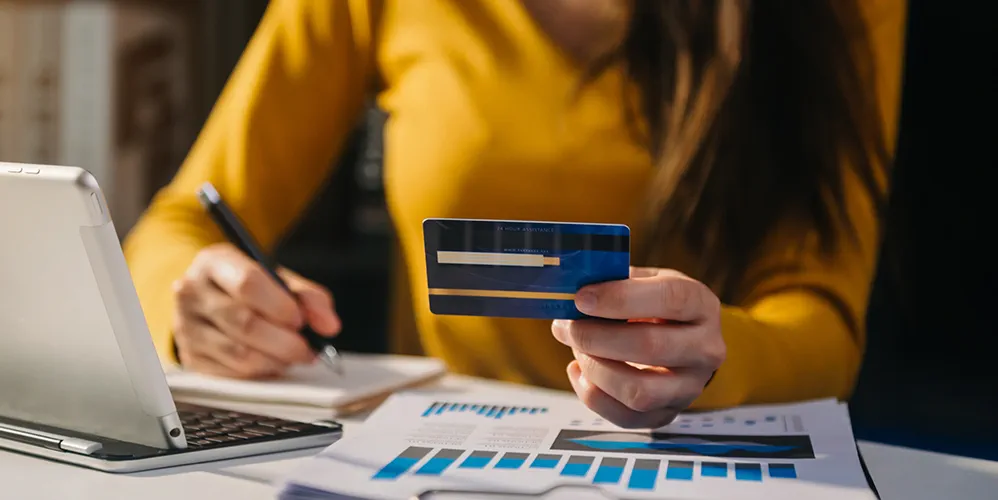
What is a Debit Card? Definition, Meaning and Key Information
A debit card is a banking instrument that helps customers to make safe and easy payments from their savings account. Releasing customers from branch visits for simple cash withdrawals for payments, the debit card performs a plethora of cashless transactions. ATM withdrawals, card swipes, and eCommerce payments, you do not even need to carry cash when traveling abroad. Deemed better than credit cards, debit cards regulate overspending. Account holders are eligible for debit cards as soon as they open a savings account with the bank. A debit card is different from a credit card. Let us help you with complete insight into debit card meaning, debit card eligibility criteria, features & benefits of debit card , and much more.

Bank of Baroda Debit Card Offers
Debit cards have become powerful banking instruments that have gone much beyond simple cash from teller counters. Amped with a plethora of services, debit cards are loaded with rewards. You should check out the wide option of debit cards offered by the Bank of Baroda. Meeting the standards of your lifestyle, and reaching out to the exact customer demands, the debit card permeates its reach to clothes, food, lifestyle, health, travel, etc. Making life easy, the Bank of Baroda debit card offers owners pride with the wide array of facilities attached to them.

A Comprehensive Guide to Different Types of Debit Cards in India
The advent of debit cards has added convenience to the way an individual handles their fund safely. The plastic card is powered with seamless transaction abilities allowing the cardholder to make cashless transactions. A step closer to digital banking , debit cards have brought the Indian population closer to realizing the ease of handling virtual cash from their savings or current accounts. With time, the ATM Card has merged into the debit card with several other facilities. Banks have introduced different types of debit cards ranging from contactless to swipe cards, the digital revolution boosted by the banking sector has widened its multiple uses. For detailed knowledge of the different types of debit cards , read on to understand the specifics of each.

Understanding the Features & Advantages of Debit Card
A debit card is a convenient alternative to cash availability linked to the savings or current account. Starting the tradition of a cashless society, a debit card can be called the first step to digital banking. From ATM cash withdrawal/deposit, cashless purchases, and contactless swipe payments to online payment; cash management becomes so much easier with debit cards . Account holders are spending their own money, unlike credit cards. If spending can be regulated, the advantages of debit cards are unmatched. So, what are the benefits of debit card? Let us regard the features and advantages of debit cards.
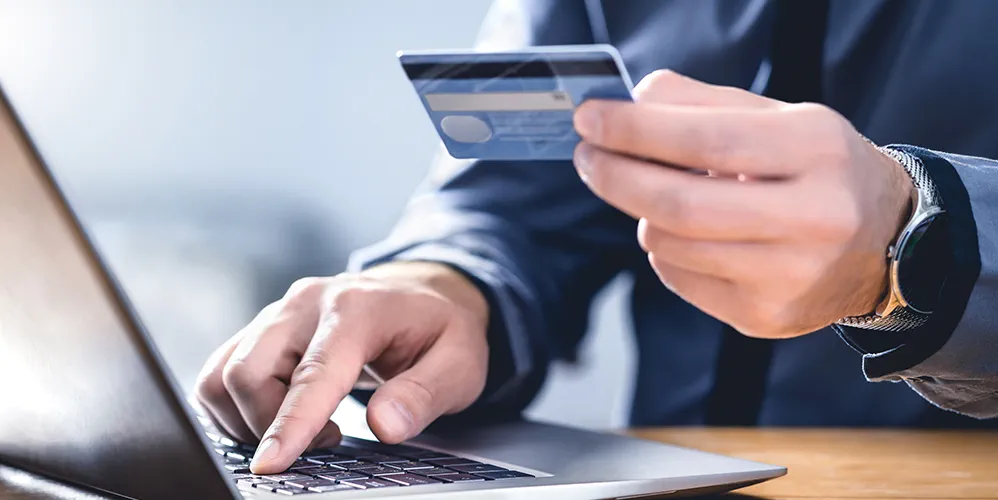
Step-by-Step Guide: How to Apply for and Get a Debit Card Online
Debit cards are alternative plastic cash cards that come with savings and current accounts. People in the country have reached a comfort point using debit cards, especially owing to the ease of a transaction. Linked to the savings account they allow you to spend the money in your savings account. So, if you haven't yet discovered debit cards and their advantages, we will take you through a step-by-step guide on how to apply for a debit card. Read on to get a quick idea of the debit card application process.

Advantages and Challenges of Digital Banking
Digital Banking is online banking backed by an internet connection. Traditional banks are getting a breather, as a large part of customer traffic is being managed by digital banking apps and net banking. Customers can easily access their accounts and payments through digital devices like smartphones, tabs, laptops, desktops and ATMs. The benefits of digital banking became more conspicuous during the COVID pandemic period when physical branches could not be approached due to social distancing that confined people to their homes. The popularity of digital wallets, bank apps and contactless and cashless payments gained traction as more and more people realised the advantages of digital banking.
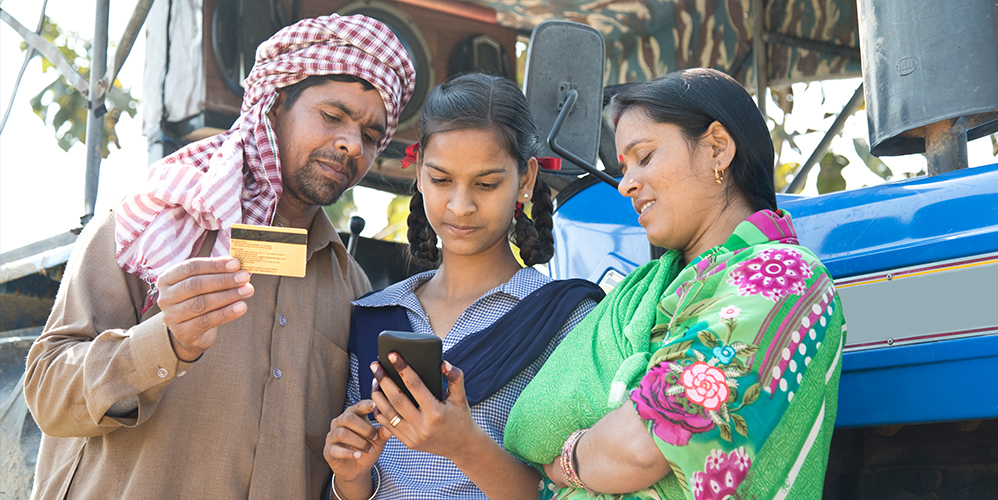
Digital Banking a Complete Guide
Digital banking is a financial banking technology, value tapping on product simplicity and personalised customer experience with the help of the Internet. Digital banking is modelled on digitally first incumbent banking. It capitalizes seamless digital payment systems, manages accounts, offers easy reach to financial products like loan management, bill payment and more through mobile and other electronic devices.

How to Address Digital Banking Risk
Banks had attracted several customers to their digital platforms in the last half of the century, even before the pandemic. However, concerns and hesitation from customers regarding risks in digital banking were obstructing this transformational journey. COVID-19 accelerated the adoption of Digitech. Digital banking products and services are now flourishing both in payment and lending domain. On one hand, we see openness to adoption, on the other hand, with increasing growth, increase in various systems and technology risk comes into play. Keeping these concerns in view, we will discuss common risk in bank’s digital domain and actions taken by banks to mitigate these risks underpinning customers’ confidence. Let us take you through the risk and its management practices followed by banks in digital banking procedures.

Digital Banking Trends to Keep in Mind for 2023
With the advent of technology in banking, we are already experiencing a significant change in the way digitalization in banking is affecting the Indian population. Indian consumers, merchants and local vendors are getting used to the technology of cashless financing. Banking apps are also focused on customer ease and solutions, tapping all customer need with intuitive analysis, hosting payment gateways to other more complex solutions, this trend is bound to take off more in the coming years. Though the trend has caught more with the younger generation, it is equally important to upskill the older generation less proactive to the change. Also, while the urban population is holistically gripped by fintech through payments, investments and credits, the digital divide is strongly noticed in rural sectors that still lack technology, education, and training. While COVID-19 leapfrogged mass digital inclusion, bringing the entire population under the Digital Ecosystem will require greater accessibility through regional language, region-specific studies with organic development through offline ambassadors creating a local connection. We know that in India, the government has already set these initiatives in motion, let us see what digital banking trends 2023, hold for fintech digital banking.

Future of Digital Banking in India
Covid- 19 has successfully established a new dimension to the future of digital banking in India. India saw a meteoric rise in digital adoption in that period. The emergence of new digital participation from other financial entities aided transition at the micro level. A global survey by Mastercard reveals Indians as the most willing in the Asia Pacific to embrace emerging digital payment methods. Boston Consulting Group's (BCG) research report further points out that digital growth in India attributes to a 'surplus of capital, maturing infrastructure and favourable underlying customer demographics.' Indian banking is setting an example as a 'model banking of the future,' paving way for successful UPI payments, and QR codes. This approach should be adopted for lending and data management too.

Types of Digital Banking
Different types of digital banking systems in India have not only touched the urban elite but are also permeating the rural sector. Digital banking is categorised by different types of digital payments. These modes of digital payment use electronic means replacing cash and cheque. Let us discuss this in detail.

What is WhatsApp Banking - A Complete Guide
Banks are trying to win tech-savvy customers with a digital-first experience. WhatsApp banking is another addition to this convenience package of digital banking. As Avi Lousky, VP of Product Management, at Lightico points out, "When bankers can take customers through a single, seamless journey, everyone wins”. Making customers' banking journeys comfortable with personalised and contextual customer experience, WhatsApp banking creates closer interactions with customers.
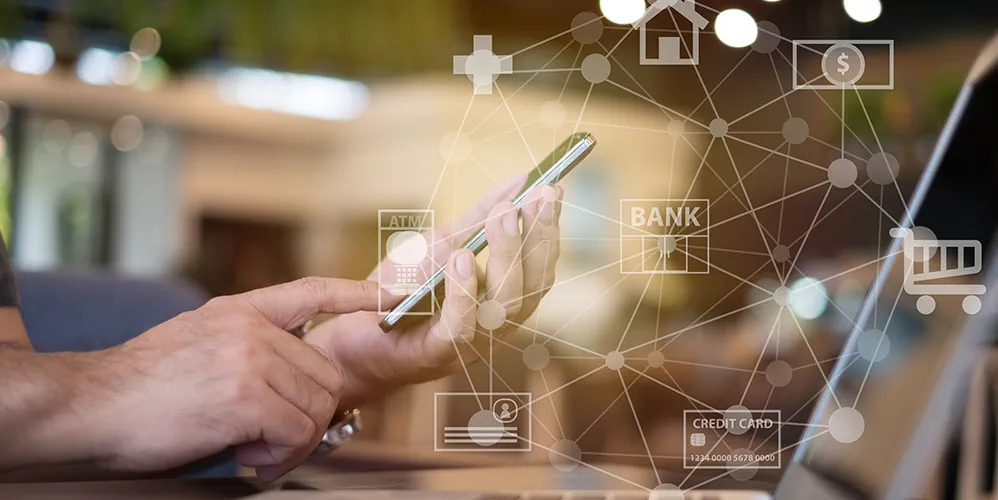
What is a Digital Saving Account - A Complete Guide
With technology filling gaps in the banking sector, digital savings accounts are answers to long winding queues and endless document verifications needed for savings accounts. In the words of Brett King CEO and co-founder of Moven, 'Banking has to work when and where you need it,' and that is the exact purpose that a digital savings account serves. Liberating you from tedious procedures, digital banking, first through internet banking and now through smart mobile banking apps, has redefined banking concepts. Saving accounts can be opened instantly with all banking features embedded in an app, your account is at your command, without the requirement of a physical presence at the branch. Supported by strong government and RBI initiatives, digital-first solutions have ushered in a new digital age in banking. It is banking with added features and more customer convenience features as compared to regular savings accounts.

Things to Keep in Mind While Using a Credit Cards
Credit cards are a boon for instant money, especially in case of emergencies. However, always use them responsibly. Pay your credit card bill timely, ensure you purchase according to your credit limit, avoid overspending, and more. Be fully aware of credit card usage and be careful while using a credit card.

Pay your Bank of Baroda Loan EMIs via bob World app
Digital economy creates many new economic opportunities. It can help improve economic and social outcomes, and be a force for innovation and productivity growth. Government of India’s Digital India programme aims to transform India into a digitally empowered society and knowledge economy.

A Complete A-Z Guide on UAN Number
The UAN full form is Unique Account Number. It is a 12-digit code that helps you access your Employee Provident Fund (EPF) account. The UAN can help access various services linked to your EPF account such as checking your PF account balance, applying for a PF loan or withdrawing money from your PF account. It is assigned to you by the EPFO (Employee Provident Fund Organization) through your employer at the time of subscription. The UAN remains the same regardless of the jobs you change and hence, it can help you get independent access to your provident fund account. Whenever you change your job, the EPFO generates a new EPF account ID and links it to your UAN. This way you do not have to create new PF accounts every time you switch your job and enables you to view and reconcile your EPF account history quite conveniently.
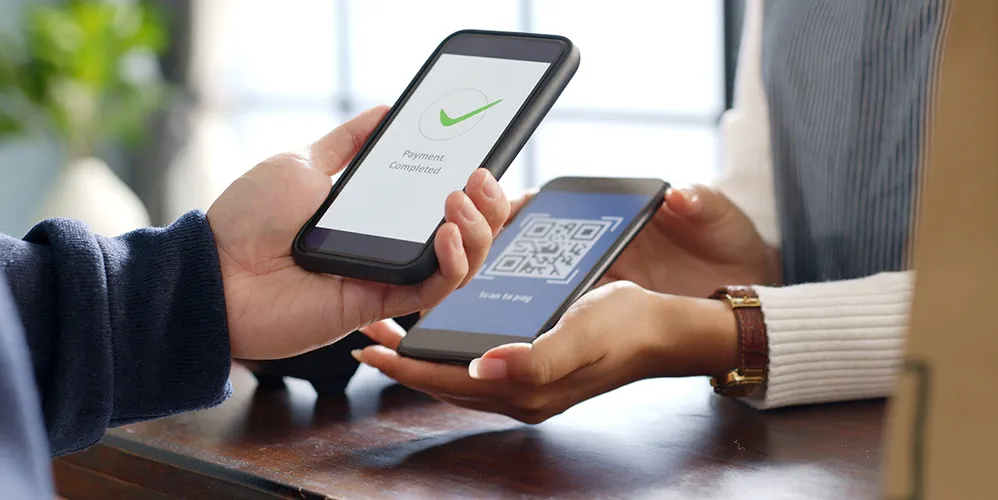
Money Transferred to Wrong Account Number? Here’s How to Get it Back
We are all extremely cautious when it comes to money transfers. Most of us check and then double-check every little detail before hitting the send button. However, we are only human, and mistakes can happen.

Complete Guide on Bank of Baroda B3 Account
No matter which part of the world you live in, you embark on your money management journey with a bank account. For most of us, our Savings Account is the first account wherein we deposit money and begin saving it. But if you wish to open a bank account that is more than a just an ordinary or regular savings account, Bank of Baroda’s B3 Accounts has you covered. Here, we talk about the new-age banking solutions that you can enjoy with the Bank of Baroda digital B3 accounts from the comfort of your home. Keep reading to know all the features and benefits of Bank of Baroda B3 accounts along with the account opening process.

A Complete Guide to bob World Mobile Banking App
Imagine having a bank in the palm of your hand. That is exactly the power of a mobile banking application. It helps you avail most of the common banking services with just a few clicks, reduces paperwork, and saves you a significant amount of time. There are a lot of other benefits of using a mobile banking application. Thus, to offer a swift and easy banking experience to our customers, Bank of Baroda offers you a banking app, bob World App. It can help you access your Bank of Baroda account information from anywhere and at any time that is convenient for you. To help you understand better, here is a complete guide on the bob World mobile banking app.
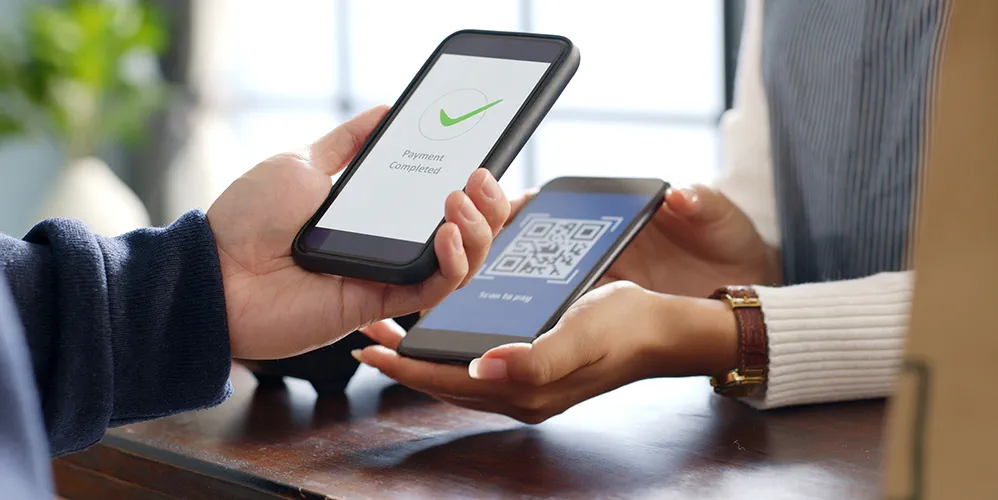
All You Need To Know About UPI
With the booming Digital Payment Ecosystem, India’s Financial Sector is soaring new heights. The newer payment models, sophistication in the acceptance infrastructure multiplied with customer’s need of convenience coupled with reliability has given an unrivalled thrust to the economy. In this digital age where mobile applications & payment systems are ruling over the masses, Unified Payments Interface (UPI) is placed in the top-drawer of all payment models.
Not only the ease but also the robustness of UPI has enticed users from all strata and demographics of the society to use this remarkable application.
What is UPI?
Unified Payments Interface is a real-time payment system that channels multiple bank accounts into a single application mobile application. This concept was developed by National Payment Corporation of India (NPCI) for facilitating instant fund transfer, merchant payments and collection of funds. The unique feature of this application is the “Peer to Peer” collect request which can be scheduled as per desire and convenience. The application offers a two factor authentication (2FA) which enhances the security and protects the interest of the customers. Customer will create Login PIN as well as UPI PIN in UPI. Customer has to use Debit Card credentials like Last 6 digits of the card and card expiry and create the UPI PIN by authenticating the same with OTP received on the registered Mobile Number.
Digital on-boarding process in BHIM Baroda Pay UPI APP
Please go to Google Play Store (Android Users) or iOS AppStore (iOS Users) for downloading - BHIM Baroda Pay UPI application.
Post complete download, the application will install on the device.
Click on the installed application to register and accept all app permissions to start the registration process.
Enter your registered mobile number and select the SIM Slot in which your registered mobile number is placed.
A silent SMS will be sent from your registered mobile number. Make sure sufficient mobile balance is available for sending silent SMS.
After mobile number verification, application prompts to enter name and proceed.
Select the Bank where your Bank account exists under the same registered mobile number.
Post selection of account, application will display the list of all eligible accounts for UPI.
Select any one / all the accounts and create a VPA (UPI ID).
Create login PIN, select security question and create answer.
Accept the Terms and Conditions and proceed, which completes the registration in BHIM Baroda Pay UPI.
Post registration, generate UPI PIN to be used for transaction.
In the home screen under added accounts, UPI PIN status will be displayed (Set / Not Set)
Click on the three dots icon under desired account.
Select the option -> Set UPI PIN. On the next screen-> Enter last 6 digits of debit card issued in the same account.
Enter the card expiry and proceed.
An OTP will be received on registered mobile number. The same will be auto read by the application. In case of devices where auto read facility is by default disabled, manually key in the OTP.
Now create UPI PIN and reconfirm the same.
UPI PIN is successfully set. Now you are ready to do UPI transactions…….
UPI for Collection Purpose
Merchants can use UPI channel for receiving / collection of payment from their customers. Customer can pay to the merchant either by sending money to merchant’s UPI ID or by scanning the QR code displayed at merchant location/ website.
Bank’s UPI platform is having capability to provide customized UPI based payment solution to merchants. Bank’s UPI platform supports low integration and transaction cost to merchant to enable UPI as a payment mode for transaction in addition to debitcard, credit card, wallet and net banking to accept the payment from the customer in convenient, easy and hassle free manner.
Risks, Vigilance & Prevention
The emerging digital payment channel comes with its own fair share of risks. Recent events give insights to the lack of awareness and negligence on the part of the customer which has resulted in huge loss of money to the customers. From Vishing to suspicious app download to spoofing, the socially engineered techniques to dupe customers has evolved drastically. Major Modus Operandi are as under
:
UPI SMS Spoofing Fraud
UPI Collect Request Fraud
UPI AnyDesk Fraud
Branches and staff are required to educate customers regarding the risks associated with the application used. More the clarity about the product, less will the unauthorized transactions in the accounts. As it is rightly said, “With more power comes more responsibility” and this is true in case of a payment channel so convenient and easy to use, UPI.
Significance & Future
UPI as a collection medium is growing drastically. The recent pandemic has helped to propel the transaction and usage of the application as it promotes contactless payments and with Government bringing in key initiatives driven by Digital mode, this product is said to shatter all known barriers and emerge as the most used payment mode in the ecosystem.
The interoperability is vital to facilitate transactions in a financial world of different account types. This has been made possible by the most advanced form of digital payment i.e. Unique Payment Interface (UPI) which justifies its name - “UNIQUE”.
UPI is a game-changer for Bank as an organization and which is laid out insightfully can consolidate Bank’s brand and enhance acceptance & penetration among masses and classes.

Medical AI
Artificial Intelligence has unimaginable potential. Very soon, it will revolutionize every area of our life, including medicine. Artificial intelligence will prove to be the next successful area of cooperation between humans and machines. This collaboration shall enhance efficiency benefitting many around the world.
DeepMind Technologies is a UK based artificial intelligence company and research laboratory founded in September 2010 which was acquired by Google in 2014. DeepMind’s health team merged with Google Health so as to build products that support care teams and improve patient outcomes. Google Health is tapping into AI’s potential to help in cancer diagnosis, predicting patient outcomes, averting blindness and more. Together with the company’s DeepMind branch, Google Health has recently come up with an AI-based solution for identifying cancer.
IBM’s dedicated health branch, Watson Health, was set up as a service to bring AI’s helping hand to stakeholders within the healthcare sector from payers to providers. With the power of cognitive computing, Watson Health has aided several renowned organizations like Mayo Clinic with its cancer clinical trial and Biorasi to bring drugs to the market faster while slashing costs.
Researcher Frost & Sullivan said artificial intelligence systems will generate $6.7 billion in global revenue from healthcare by 2021.
Traditional ML technologies are incompatible with biomedical raw data formats, and there are few standards for data standardization, normalization and harmonization. BioSymetrics solves this problem by deploying its primary solution, Augusta, which is a pre-processing and analytics platform that can process large amounts of data (siloed and raw data) for predictive analytics. This is useful for capturing the huge amount of data released from the 25B IoT devices and other biomedical data types (EEG, MRI and others) and deriving actionable insights from them. The customized and flexible tool can be used by scientists, providers, hospitals, biopharmaceutical companies etc. Augusta is the first biomedical specific machine learning framework. Augusta is designed to transition time from data pre-processing and integration to model building and interrogation using familiar toolsets within Python.
Sensely is an avatar-based, empathy-driven platform that leverages natural user interfaces to intelligently connect insurance plan members with advice and services. By utilizing Sensely’s scalable platform technology architecture, insurance companies can converse with their members in an entirely new way, combining the empathy of human conversation with the efficiency and scalability of technology.
Artificial Intelligence will redesign healthcare. AI could help medical professionals in designing treatment plans and finding the best suited methods for every patient.
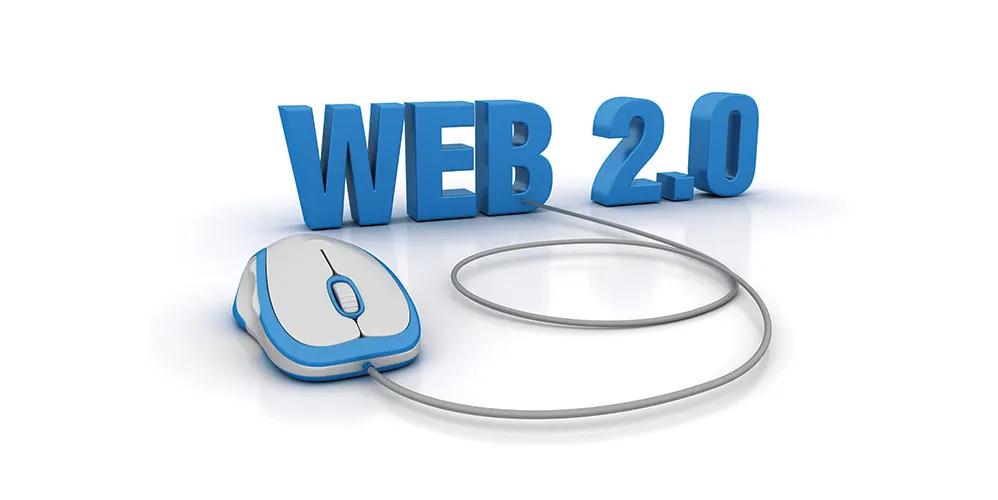
Internet of Value: Internet 2.0
Internet in its current phase, has revolutionised almost all businesses across geographies. However, the current phase, ‘Internet of Information’ focuses solely on information exchange in the form of documents, images and videos.
Although information moves around the world instantly, a single payment from one country to another is still slow and expensive. In the US, a typical international payment takes 3-5 days to settle, has an error rate of at least 5% and an average cost of $42. Worldwide, there are $180 trillion worth of cross-border payments made every year, with a combined cost of more than $1.7 trillion a year.
With the emergence of blockchain, a new phase of internet called ‘Internet of Value’ has emerged. Internet of Value is underpinned by blockchain, which is the evolutionary technology that supports digital currency. With Internet of Value, a transaction such as a foreign currency payment can happen instantly, just as how people have been sharing information online for decades. Internet of Value can also enable the exchange of any asset that is of value, including stocks, frequent flyer points, securities, intellectual property, music, scientific discoveries etc.
Multiple startups have started working on this front. Fusion is an innovative blockchain solution created to bridge the interoperability gap between different blockchains through cross-chain transactions. It also has the potential to create off-chain transactions as the inevitability of a value-driven economy becomes more pronounced.
Similarly, Wanchain offers a unique solution for overcoming the limitations on cross-chain transactions through mass-market adoption of blockchain technology. It is developing a new distributed financial infrastructure that will connect the world’s digital assets. In order to facilitate the digitization of assets, Wanchain has built an internal private blockchain through which users can build smart contracts for a practical transfer of value.
Currently, there are various blockchain-based platforms which are not compatible with each other. Hence, assets on these platforms can’t be freely exchanged. For the internet of value to become a reality, uniform industry standards must be adopted in order to homogenize the world’s different financial systems.
We believe that this process of standardization can have a transformative impact on businesses in today’s world. This impact can be as instrumental as globalization efforts in 1950s or standardization of web protocols in the 1980s.
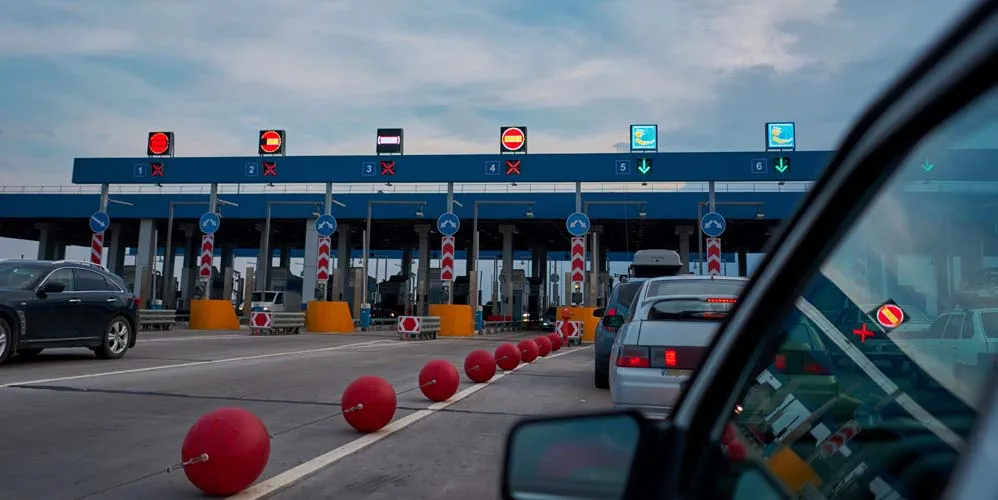
10 FASTag Rules you must know
You must already be familiar with FASTag, the path-breaking tag that enables you to zip through toll plazas without pausing. But are you familiar with all the FASTag new rules? If you aren’t, here’s what you should know so that you don’t encounter any roadblocks on your way to getting one for your vehicles
It’s compulsory now
Well, there’s no way you can wriggle out of this one now. Under the FASTag toll plaza rules, the government has decreed that all lanes will be FASTag only. So it’s now compulsory for all vehicles to have it from 15 January 2020.
How to buy FASTag
You can buy FASTag at over 20 banks, including Bank of Baroda, and other point-of-sale outlets like toll plazas. You can even order them online through Amazon.
What are the documents you need to get FASTag?
To get a FASTag, you will need to submit documents like registration certificate (RC) of the vehicle, passport-size photograph and KYC documents. A driver’s licence will suffice for ID and address proof.
How to activate FASTag?
Once you have purchased the FASTag, you can activate it at your Bank of Baroda branch. You will need to submit your documents at this stage.
How to pay tolls using FASTag ID?
This isn’t necessarily one of the rules of FASTag; however, after you buy it, attach it to the windscreen of your car. Each time you pass a toll plaza, an electronic reader reads the tag using RFID technology and charges you the toll. This amount is automatically deducted from your account or your wallet.
What are the charges that I have to pay for FASTag?
You have to pay a one-time activation fee of Rs 100, as well as a security deposit. The security deposit will depend on the vehicle and ranges from Rs 200 to Rs 400.
Can I use one FASTag for multiple vehicles?
No, this is not possible. FASTag is meant for one vehicle only.
How to recharge FASTag?
If you have chosen the wallet option instead of direct debit from your account, you need to recharge it from time to time. It’s a relatively simple process. You can log in to your account using your ID and password and use Debit or Credit Card or Internet Banking to top up your account. You can also use other methods like UPI.
Do I get a discount on tolls if I live near a toll plaza?
You can get a discount on tolls paid through your FASTag if you live within 10 km of a toll plaza. You will have to submit proof of residence to avail of this benefit.
What happens if I don’t have a FASTag?
Well, you’ll have to pay double the toll fee, which you have to pay at a hybrid lane that accepts payments over the counter.
So now that you know all FASTag rules don’t hesitate any more get a FASTag account today at Bank of Baroda!
Your browser does not support HTML5 video.
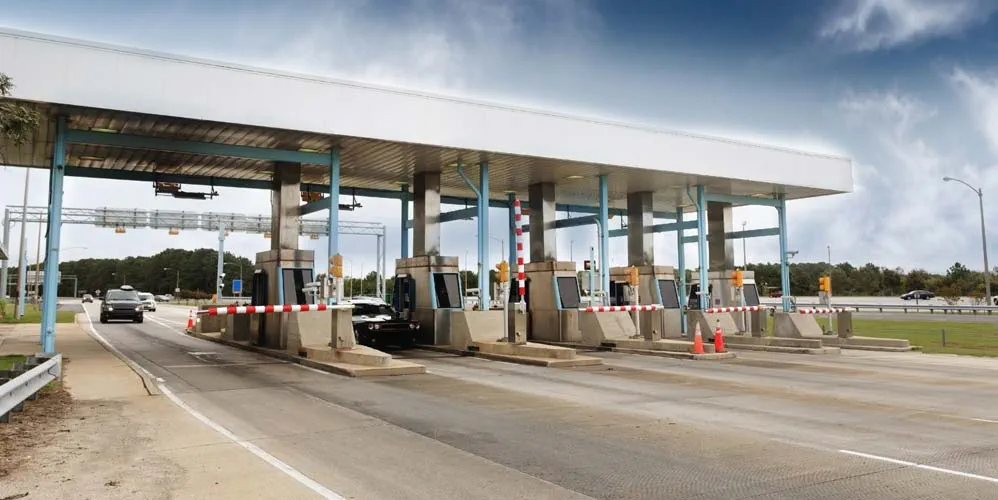
Know how to get FASTag for your vehicle
When driving on a toll road is that you have to stop from time to time to pay the toll. Sometimes the lines are long, and you have to rummage in your wallet/ purse to give exact amounts to the attendant, who more often than not, doesn’t have any change. But that could all be in the past with FASTag.
So what do you need to know about FASTag? Well, it’s a tag affixed to your vehicle’s windscreen, which allows you to zip past a toll booth. The amount is automatically deducted (using Radio Frequency Identification Technology, or RFID for short) from a pre-paid account that you need to fill.
Well, you may have no choice to get FASTag, since the government has mandated that all vehicles will need to have these tags. What’s more, the over 400 toll plazas over the country will no longer accept payments over the counter. So how to get FASTag for my car is what every vehicle owner needs to know right now.
How to get FASTag for cars
Where to buy: You canvisit any of the points of sale (POS) locations like toll plazas or banks like Bank of Baroda.
What documents do I need: You will need the following documents to get FASTag:
Registration certificate (RC) of the vehicle
Your passport-size photograph
KYC documents
What KYC documents do I need: If you are an individual vehicle owner, a valid driving licence should suffice for address and ID proof. You can also use the Aadhaar card, PAN card, voter ID card, and so on.
What charges you need to pay: You have to pay a one-time issuance fee of Rs 100 for the Baroda FASTag, and a refundable security deposit, which depends on vehicle type.
How to access FASTag account: Whenyoupurchase a FASTag card, you will get a username and password for the web portal, which you can use to recharge, make complaints, get details of transactions and so on.
What is the process for toll payment? You have to deposit a certain amount in your FASTag account. Each time you go through a toll point, the amount gets automatically deducted from the amount.
How will I know how much has been deducted? You will get an SMS on your registered mobile phone number each time the FASTag has been used to cross a toll plaza. So you can track every transaction you make.
How to recharge the FASTag account: Recharging the account is a simple process. You can do it online through Debit or Credit Cards, through Internet Banking or other methods like UPI. You can also do it by visiting any of the POS locations.
What is the minimum amount for recharge or top-up: The minimum amount is Rs 100. However, you may want to put more so that you have adequate balance in your account to ensure smooth driving.
What if I don’t have enough balance in my FASTag account? If you don’t have enough balance in your account and pass through a poll plaza, you will be blacklisted. That is, you will not be allowed to pass another time until you pay up the amount.
How to affix FASTag on the car: You will need to affix FASTag on the front windshield. However, your bank will give you instructions on how it’s done.
Can I use FASTag for more than one vehicle: No, you cannot do that. The FASTag is for one specific vehicle only. You will need different FASTags for different cars.
What if I’m charged wrongly for any transaction? If you are charged incorrectly for any transaction, you can complain online using your User ID and password. You can call customer care on 18001034568 at any time of the day or night.
What is the validity period of the FASTag card? The FASTag is valid for five years.
Who is implementing FASTag? FASTag is being implemented by the Indian Highways Management Company Limited (IHMCL) a company incorporated by National Highways Authority of India and National Payment Corporation of India (NPCI).
Your browser does not support HTML5 video.

7 Safe Online Banking Tips You Must Know
Indian banks are gradually edging toward having most of their processes online. From sending money to paying bills and even investing, stepping away from traditional methods has become necessary. Though almost half of India’s population have accepted the change to online and mobile banking, many are still hesitant. The main concern is internet safety, which is valid; however, it shouldn’t hold anyone back from transacting. Here are safe online banking tips you can follow to enjoy a seamless and convenient banking experience:
It All Begins with Your Passwords
The cardinal rule for transacting online or via your smartphone is, you must have a strong password and change it regularly. This is one of the most critical and necessary safe internet banking tips. Use random numbers, symbols and letters that only you will remember. Most banks will recommend a combination of all three and some will even prompt if your password isn’t strong enough. Using upper- and lower-case letters help too. Stay away from familiar things like birthdays, names, house numbers etc. Finally, do not share your passwords with anyone, no matter what. Your passwords are unique and meant only for you.
Do not save passwords / credentials on browser and/or any apps for login.
Keep a Close Watch on Your Accounts:
Monitor your accounts’ activities frequently, especially if you transact a lot. It is one of the few tips for safe internet banking of which we become careless. You have to check your bank balances and monthly statements for any debits that appear suspicious. Reach out to your bank in case you find such or similar transactions.
Use a Secure Internet Connection
To prevent anyone from misusing your private information, one of the safe online banking tips is to use a secure, internet connection. Make sure that the wi-fi is password-protected and not free; if you’re travelling, connect with your smartphone’s hotspot. You can even choose a private browser to access your bank’s netbanking platform.
Get Notified
One of the safe internet banking tips is to turn on your bank’s notifications from your mobile phone. You can also opt for receiving SMS alerts. Many banks allow you to customise notifications and alerts, e.g. you can choose specific triggers like in case your account balance goes below or above a particular limit.
Sign-Out, Every Time
Once your netbanking or mobile banking session is over, remember to sign out. This is one of the tips for safe internet banking that few are aware. Uncheck the ‘Keep me signed in’ box and log out. In fact, as an added precaution, clear your browser history and cache after you log off.
Sift the Real From Fake
Phishing and calling scams have increased over the last few years. Among the safe online banking tips, you may already know of this one. Your account information, passwords, card CVV numbers, OTPs etc. are confidential. Never entertain or answer an e-mail or call that requests for any or all of these details, unless you have initiated the transaction.
Do not click on the any link provided in the email / SMS message etc. Always type the bank website URL in the address link of browser to access your account.

